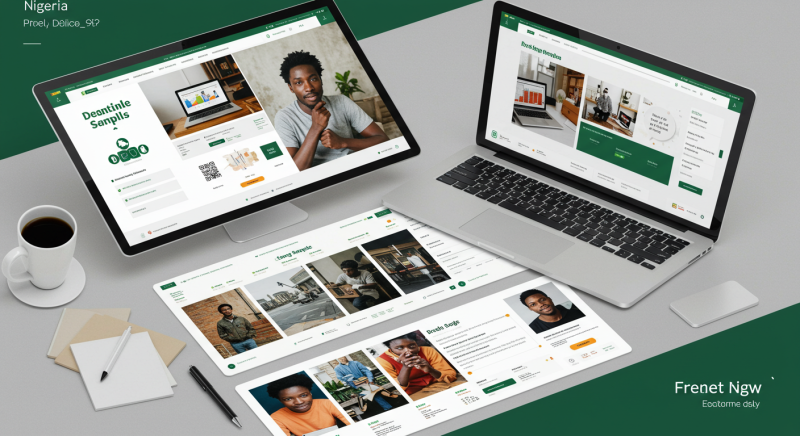Unleash Your Potential: The Ultimate Guide to Freelancing in Nigeria: How to Find and Secure Freelance Opportunities in 2025
Picture this: Lagos traffic at 6 AM, the honking horns, the frustration of another day stuck in a cubicle for eight hours, and the sinking feeling that your talents are worth more than your monthly salary. This is the reality for millions of Nigerians—but it doesn’t have to be yours.
The world of has exploded in recent years, creating a pathway to financial independence for talented professionals across the country. According to a 2024 report by the Nigerian Bureau of Statistics, the gig economy in Nigeria has grown by an impressive 77% since 2020, with over 2.3 million Nigerians now identifying as freelancers.
This surge in isn’t happening in isolation. It’s part of a global shift in work culture accelerated by technological advancements and changing attitudes toward traditional employment. For Nigerians specifically, freelancing represents not just flexibility and better income potential, but also a path to international opportunities without the need for relocation.
This comprehensive guide explores everything you need to know about , from identifying your marketable skills to navigating payment systems and building a sustainable freelance career right here in Nigeria.

Before diving into how to secure opportunities, it’s essential to understand what makes unique compared to other markets.
Nigeria’s freelance ecosystem is characterized by a fascinating blend of local and international opportunities. While platforms like Fiverr and Upwork remain popular among Nigerian freelancers seeking international clients, local platforms such as Jooble Nigeria and NgCareers have emerged to connect freelancers with Nigerian businesses.
According to research by Payoneer’s Global Gig Economy Index, Nigeria ranks among the top ten countries with the fastest-growing freelance markets globally. This growth is particularly evident in sectors like content creation, web development, digital marketing, and virtual assistance—areas where Nigerian talent is increasingly recognized worldwide.
The COVID-19 pandemic served as a significant catalyst for , pushing many businesses to embrace remote work models and driving professionals to seek alternative income sources. A survey by Flexjobs found that 65% of Nigerian freelancers started their freelance journey during or after the pandemic.
Success in begins with identifying where your skills align with market demands. The most lucrative freelance sectors in Nigeria currently include:
To identify your optimal niche within the ecosystem, assess your existing skills, market demand, competition level, and earning potential. The sweet spot lies at the intersection of what you’re good at, what you enjoy, and what clients are willing to pay for.
Once you’ve identified promising niches for , the next step is developing or refining relevant skills.
Nigeria’s competitive freelance market demands excellence. According to a survey by Workana, clients hiring Nigerian freelancers rank skill proficiency as their top criterion, above price and experience.
Here are practical ways to develop marketable skills for :
A strategic approach to skill development for involves both depth (becoming exceptional in your core skill) and breadth (developing complementary skills). For instance, a web developer who understands basic design principles and SEO fundamentals can offer more comprehensive services.
Your portfolio serves as your primary marketing tool when seeking opportunities in . It’s your chance to make a strong first impression when clients can’t meet you face-to-face.
For Nigerian freelancers, portfolios need to overcome certain preconceptions that some international clients might have. Creating a portfolio that demonstrates professionalism, reliability, and quality work is essential.
Key elements of an effective portfolio for include:
Remember that different professions require different portfolio approaches. Writers might use platforms like Contently or Medium, designers could leverage Behance or Dribbble, while developers might showcase code repositories on GitHub alongside their personal sites.
Now comes the practical aspect of —where exactly to find clients willing to pay for your services.
The opportunities for exist across multiple channels, and successful freelancers typically utilize several simultaneously:
A strategic approach to finding opportunities in involves diversifying your sources while monitoring which channels provide the highest quality leads for your specific niche.
Once you’ve identified potential opportunities for , crafting compelling proposals becomes your next challenge.
Nigerian freelancers face unique considerations when bidding on projects. International clients may have preconceptions about Nigerian service providers, while local businesses might have different expectations regarding rates and deliverables.
Here’s how to create proposals that convert for :
Particularly for Nigerian freelancers competing globally, proposal quality can overcome initial hesitations clients might have. Focus on clarity, professionalism, and specific solutions rather than generic capabilities.
Success in extends beyond winning the initial project—it involves nurturing client relationships for repeat business and referrals.
Communication challenges can be particularly relevant for Nigerian freelancers working with international clients across different time zones and cultural contexts.
Effective communication strategies for include:
Effective communication is particularly crucial when issues arise. Nigerian freelancers who address problems transparently and propose solutions maintain client trust even during challenging projects.
One of the most challenging aspects of involves getting paid reliably and managing finances efficiently.
Nigerian freelancers face unique payment challenges, including limited payment platform options and currency exchange considerations. According to research by FreeUp, payment issues are cited as the top challenge by 73% of Nigerian freelancers.
Essential financial management strategies for include:
Financial management extends beyond client payments to overall business health. Tracking income sources helps identify your most profitable clients and services, informing future business decisions.
Navigating the legal aspects of provides protection for both you and your clients.
The legal framework for freelancers in Nigeria continues to evolve, with increasing recognition of the gig economy but still some gray areas in legislation. According to the Nigerian Freelancers Association, over 45% of Nigerian freelancers operate without formal business registration or contracts.
Key legal considerations for include:
The legal landscape for will likely continue developing as the sector grows. Staying informed about relevant regulations through professional networks and legal resources specific to Nigerian freelancers ensures ongoing compliance.

Once you’ve established yourself in , the question becomes how to grow beyond trading time for money.
The ceiling for individual freelancers is typically determined by available hours. Scaling allows for increased income without proportional time increases. According to a study by Lagos Business School, only about 12% of Nigerian freelancers successfully transition to agency models or productized services.
Strategies for scaling your business include:
Scaling a freelance business in Nigeria often requires shifting mindset from “freelancer” to “business owner”—focusing on systems, delegation, and strategic growth rather than day-to-day execution of all tasks.
While offers tremendous potential, understanding and preparing for common challenges increases your chances of success.
Nigerian freelancers face several distinct challenges compared to their counterparts in other countries:
Despite these challenges, the growing success of Nigerian freelancers on global platforms demonstrates that they can be overcome with preparation, professionalism, and persistence.
The landscape of continues evolving rapidly, offering unprecedented potential for skilled professionals willing to navigate its unique characteristics.
The journey of typically progresses through several stages: skill development, portfolio building, client acquisition, relationship management, and eventually business scaling. Each stage presents distinct challenges and opportunities.
As remote work becomes increasingly normalized globally, Nigerian freelancers are well-positioned to capitalize on both local and international opportunities. The combination of Nigeria’s large English-speaking population, growing tech adoption, and relative cost advantages creates a favorable environment for freelance success.
Whether you’re considering freelancing as a side hustle or full-time career path, the fundamentals remain consistent: deliver exceptional value, communicate professionally, manage your business operations effectively, and continuously develop your skills and network.
The most successful Nigerian freelancers approach their work not merely as service providers but as business owners and problem solvers. By adopting this mindset and implementing the strategies outlined in this guide, you can join the growing ranks of Nigerians building sustainable careers and businesses through freelancing.

A: Earnings vary widely based on skill specialization, experience level, and client type. According to Payoneer’s data, Nigerian freelancers earn average hourly rates ranging from $15-45, with technical skills commanding higher rates. Many successful Nigerian freelancers earn substantially more than their traditionally employed counterparts, especially when working with international clients.
A: While not legally required when starting, registering your business with the Corporate Affairs Commission becomes advisable as your income grows. Registration provides legitimacy when dealing with larger clients and may offer tax advantages. Most Nigerian freelancers begin as unregistered sole proprietors and formalize their businesses once established.
A: Nigerian freelancers should maintain records of all income and business-related expenses. Filing annual tax returns with the Federal Inland Revenue Service is required regardless of business registration status. Consulting with a tax professional familiar with freelance operations in Nigeria is recommended for specific guidance.
A: Payoneer remains the most widely used platform due to its reliability and relatively low fees. Other options include Wise (formerly TransferWise), cryptocurrency payments (particularly stable coins), and bank transfers for local clients. Many Nigerian freelancers maintain multiple payment options to accommodate different client preferences.
A: Building a strong online presence with a professional website, active LinkedIn profile, and portfolio on respected platforms helps establish credibility. Starting with smaller projects to build positive reviews, being transparent about your location while emphasizing your specific expertise, and demonstrating exceptional communication skills all help overcome potential hesitations from international clients.
READ MORE












